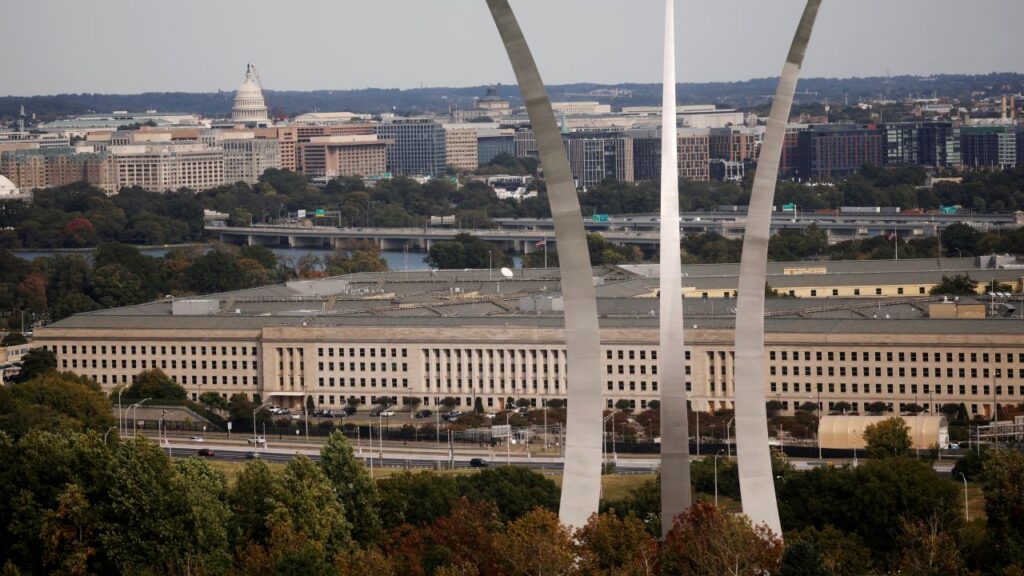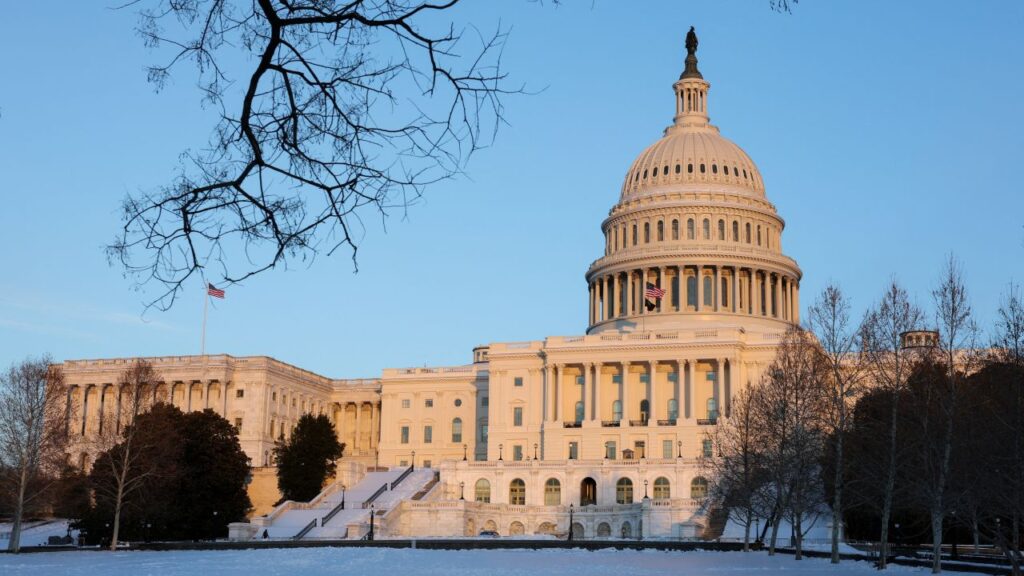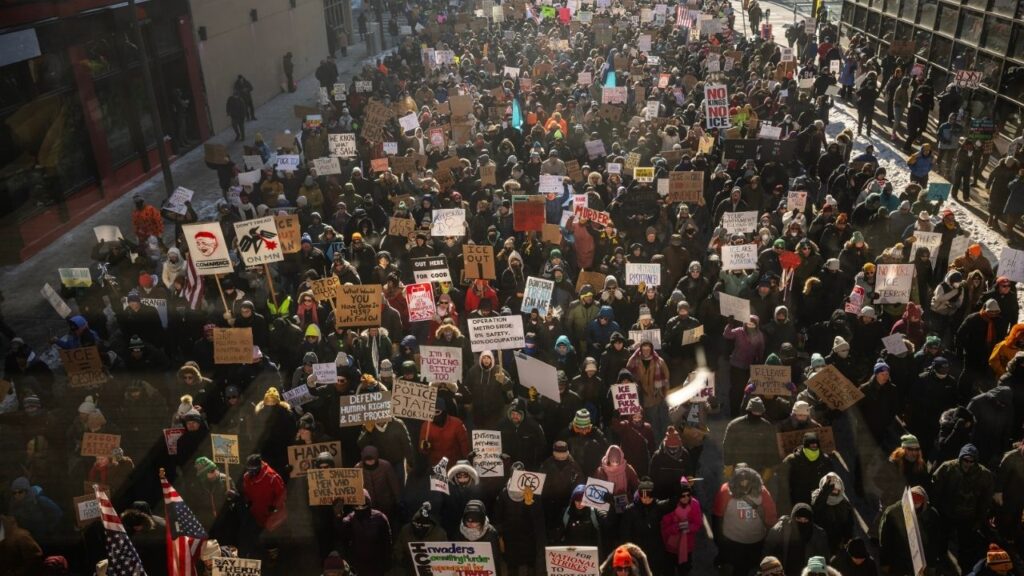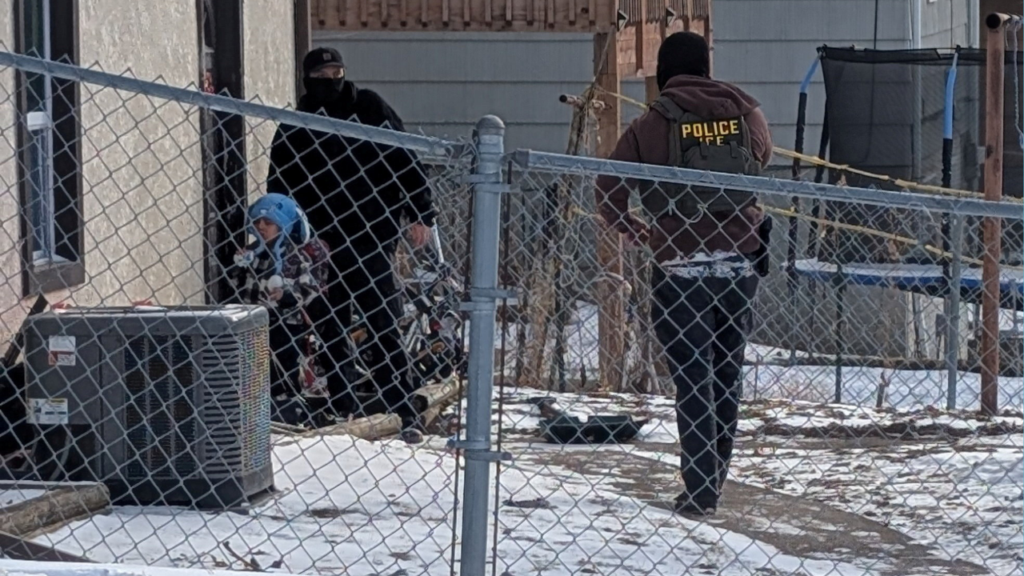California ballot initiatives on Tuesday's ballot ranged from forced prison labor to raising the minimum wage. (GV Wire Composite/Paul Marshall)

- California voters had 10 propositions on the November ballot, ranging from public school bonds to forced prison labor.
- Early voting shows Californians do not appear to be in favor of another minimum wage hike.
- Californians also do not appear to be in favor of making it easier to pass taxes to fund infrastructure.
Share
|
Getting your Trinity Audio player ready...
|
California voters had 10 propositions to consider on Tuesday’s ballot. GV Wire will keep you updated with the results of each one as they come in. Propositions 33 and 36 have their own stories. Analysis comes from the California Secretary of State’s website.
GV Wire will update results as they come in. The following results are with 95.2% of precincts reporting.
Prop 2: $10 Billion in Bonds for School Improvements Statewide
The statewide bond measure to fund school improvements took an early lead with 56.8% approval.
A vote for Proposition 2 authorizes California to issue $10 billion in bonds to improve school buildings or build new ones, from kindergarten to community college. Proponents say many of the state’s 10,000 public schools and 115 community colleges need extensive repairs or updated facilities.
The state typically pays 50% for new construction projects and 60% for renovations.
The Legislative Analyst’s Office estimates:
- $4 billion to go to renovation
- $3.3 billion to go to new construction, including land purchases
- $600 million to career technical education programs
- $600 million to charter schools
- $1.5 billion to community college facilities
Opponents, however, say given the cost of bond financing, education funding should be budgeted each year out of the general fund. Repayment for the bond would come out of general tax revenue, according to the California Secretary of State. It anticipates $500 million would paid each year over 35 years, totaling $17.5 billion.
Prop 3: Reversing a Ballot Initiative Against Gay Marriage
The measure reversing a 2008 rule has an early lead, getting 61.1% approval.
Still in the California Constitution is Proposition 8, the 2008 voter initiative defining marriage as being between a man and a woman. Despite being overturned by the U.S. Supreme Court, the proposition brought forth by Attorney General Rob Bonta would remove Prop. 8’s language.
Proponents say Proposition 3 removes discriminatory language in state law and enshrines protections for same-sex couples. Opponents say by removing the definition of marriage, it opens up the possibility for child marriage, incest, and polygamy. California law already forbids bigamy and incest. California does not have a minimum age requirement to get married.
Prop 4: $10 Billion for Natural Resources and Safe Water
Voters are approving a measure to fund projects protecting against climate damage in early voting. Proposition 4 earned 57.9% approval.
Proposition 4 would allow the state to borrow $10 billion in bonds to fund water projects, wildfire prevention, and other projects protecting communities and land. The California Legislative Analyst’s Office projects the state would spend $400 million annually for 40 years to repay the debt, costing $16 billion.
Supporters of the legislative-backed initiative say the money would fund necessary projects, such as protecting communities against wildfires and ensuring they have clean drinking water.
Recent wildfires have burned 2 million acres of land, releasing toxic smoke and polluting drinking water supplies, according to the secretary of state’s website. The fund would also fund projects protecting forests, beaches, rivers, streams, and wildlife.
Opponents, however, say the list of projects is vague and should be paid for individually out of general fund dollars.
And at an estimated $9.3 billion in interest, not cost effective, opponents say. They also said bonds should be limited to projects that outlast a 30-year payback period. They called many projects “pet projects.”
Prop 5: Making Tax Measures Easier to Get Approved
Proposition 5, the bill lowering how many votes are needed to approve infrastructure taxes, appears to be failing in early counts. The measure has 55.8% opposition.
The legislature-backed initiative lowers the voter threshold to 55% for bond measures funding infrastructure and affordable housing projects. Since the California constitution was ratified, the law required two-thirds approval for bond measures not brought up by voter initiative.
If Prop. 5 passes, paying for housing and roads would become easier and only need 55% approval rates, proponents say. Qualified bond measures have to be limited to infrastructure such as police or fire stations, roads and transit, water or sewer, or affordable housing.
Opponents, however, say making it easier to pass taxes puts the bill on homeowners and consumers. Bond measures are often paid for either by property tax revenue or sales tax revenue. Opponents, driven largely by the Howard Jarvis Tax Association and California Association of Realtors, say it will raise the cost of living in California.
They also say the definition of “infrastructure” goes beyond roads and sewers. Other applicable programs could include first-time homebuyer programs.
Prop 6: Ending Prison Labor
Early voting shows Proposition 6 ending prison labor trailing, with 54.9% opposed to 45.1% in favor.
Prop. 6 would make it illegal to force inmates to work. It also would ban punishment for people who refuse to work. Proponents called the practice of forcing inmates to work “slavery,” favoring instead rehabilitation programs. Inmates can still volunteer for work.
Supporters prefer education and job training as a means of rehabilitation. The legislative-backed initiative passed in the Assembly 68-0 and in the Senate 33-3.
No opposition was posted on the secretary of state’s website and no organized opposition spent money against it.
Prop 32: $2 an Hour Increase to Minimum Wage
California’s latest minimum wage measure has voters opposed in early voting 52% against to 48% in favor.
Following several minimum wage increases, Proposition 32 would increase the rate by $2 an hour over two years, with further increases after that.
For businesses with more than 25 employees, minimum wage goes up to $17 immediately upon approval and $18 in 2025. Businesses that have fewer than 25 employees would have to pay employees at least $17 an hour beginning in 2025 and $18 in 2026.
Following that, minimum wage would track inflation.
Supporters say increasing the minimum wage makes affording the high cost of living in California easier for minimum wage earners. By paying workers more, they rely less on taxpayers for support programs.
The Prop. 32 wage increase comes after a recent minimum wage increase to $16, putting it among the highest in the nation. Washington, D.C., has the highest at $17, with Washington state following at $16.28.
California recently approved a $20 minimum wage for many fast-food workers. Many health care workers now qualify for a $25 minimum wage.
Opponents to the measure say raising the minimum wage would further burden business owners already beset by high expenses. They say raising the minimum wage would increase the cost of living even more as businesses respond to higher payroll costs by raising prices.
Prop 34: Restricting How Nonprofits Can Spend Their Money
The bill considered by many to be a response to a rent control measure also on the November General Election ballot has voters in favor 51.5% to 48.5%.
Proposition 34 would require certain providers to spend 98% of revenues from federal prescription drug programs on direct patient care. Political analysts say this measure brought forth by the attorney general largely targets the AIDS Foundation for sponsoring the rent control proposition, Proposition 33.
The narrowly written bill limits how nonprofits like the AIDS Foundation can spend their money.
Nonprofits such as the AIDS Foundation collect money from the federal government’s drug discount program. Supporters say much of that money goes to programs beyond health care. It would also limit the ability to pay CEOs high rates of pay and buy things such as stadium naming rights.
The AIDS Foundation spent $37 million to fund Prop. 33 that would allow local governments to pass rent control measures, according to KQED. The group spent another $15.7 million opposing Prop. 34.
Opponents say the California Apartment Association paid for Prop. 34 to keep nonprofits from putting tenant protections on the ballot. Opponents say federal law allows them to spend money in accordance with a nonprofit’s mission.
Prop 35: Makes Health Care Plan Taxes Permanent
Voters appear to be in strong support for a permanent tax on managed health care plans. Early voting shows approval at 66.8%.
California currently taxes certain health care plans to help offset funding gaps left by federal Medicare reimbursement rates. Proposition 35 makes those taxes permanent. Hospitals and health clinics struggle providing services and staying open.
Hospital officials attribute low medical reimbursement rates for Medicare patients (Medi-Cal in California). Former Madera Community Hospital CEO Karen Paolinelli said low reimbursement rates were the main reason that hospital closed in 2022.
The Legislative Analyst’s Office expects the tax would raise $7 billion to $8 billion annually. There was no organized opposition to the measure.



















